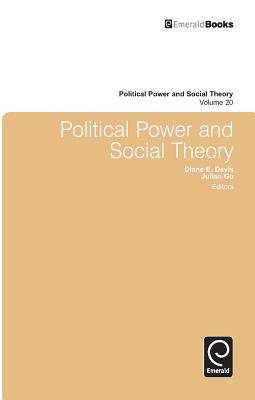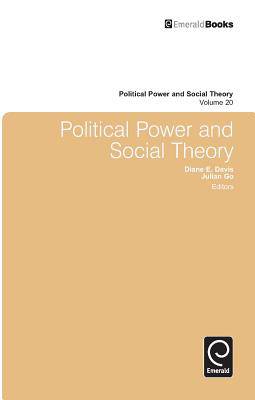
- Afhalen na 1 uur in een winkel met voorraad
- Gratis thuislevering in België vanaf € 30
- Ruim aanbod met 7 miljoen producten
- Afhalen na 1 uur in een winkel met voorraad
- Gratis thuislevering in België vanaf € 30
- Ruim aanbod met 7 miljoen producten
Zoeken
Political Power and Social Theory
€ 309,45
+ 618 punten
Omschrijving
It is an exciting time to consider changes in the field of comparative-historical sociology, as the discipline seeks to accommodate both old and new trends as well as the transforming spatial scales in which political power and social theory are increasingly embedded. Volume 20 of "Political Power and Social Theory" starts the ball rolling by showcasing articles that pursue similar themes. The question of what is old and what is new hovers over most of the contributions, particularly the peer-reviewed chapters in parts I and II, which consider such long-standing socio-historical concerns as power structure theory, class-based collective action, and empire - but examine them through new conceptual, methodological, and historical lenses. This year's volume also offers a critical treatment of the spatial or territorial dynamics of state hegemony, class power, ideologies of governance, and citizenship - with the latter theme most well developed in debate over the new geographies of citizenship in the Scholarly Controversy Section as well as in part-II's guest-edited section on Empire and Colonialism.
Specificaties
Betrokkenen
- Uitgeverij:
Inhoud
- Aantal bladzijden:
- 344
- Taal:
- Engels
- Reeks:
- Reeksnummer:
- nr. 20
Eigenschappen
- Productcode (EAN):
- 9781849506670
- Verschijningsdatum:
- 21/12/2009
- Uitvoering:
- Hardcover
- Formaat:
- Genaaid
- Afmetingen:
- 152 mm x 229 mm
- Gewicht:
- 621 g

Alleen bij Standaard Boekhandel
+ 618 punten op je klantenkaart van Standaard Boekhandel
Beoordelingen
We publiceren alleen reviews die voldoen aan de voorwaarden voor reviews. Bekijk onze voorwaarden voor reviews.










